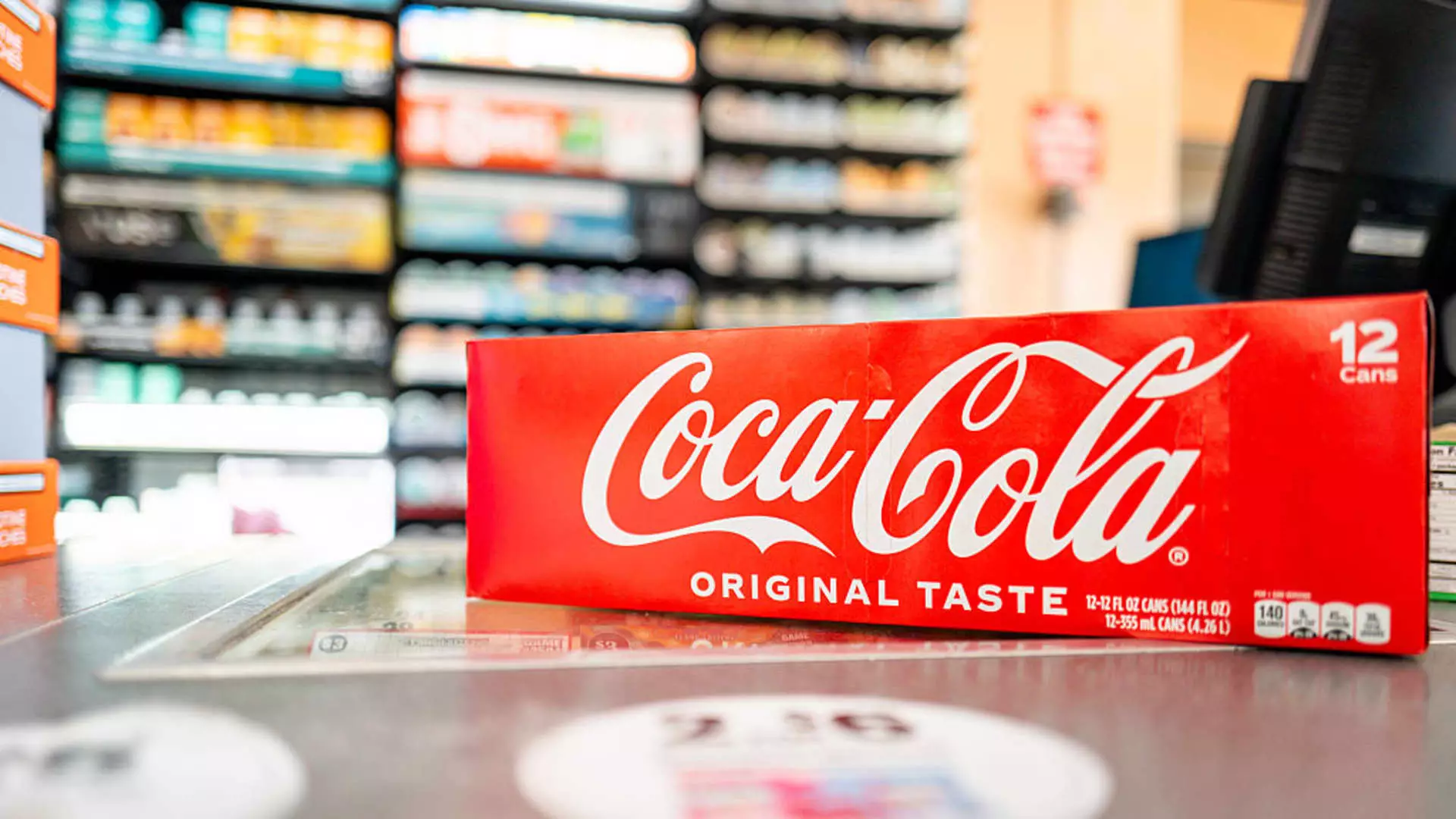Coca-Cola’s recent quarterly report paints a deceptively optimistic picture. The company surpasses analyst expectations, showing resilience, but beneath the surface lies a fragile foundation riddled with vulnerabilities. While upbeat headlines tout a modest increase in revenue and earnings, this narrative obfuscates the underlying challenges Coca-Cola faces in a rapidly changing global landscape. The company’s ability to cling to growth figures masks deeper issues, such as declining volumes and shifting consumer preferences, which threaten the conglomerate’s stability in the long term.
In a moment where economic uncertainties loom large, Coca-Cola’s performance is less a validation of robust growth and more a reflection of superficial resilience. The reported 1% rise in net sales, alongside a slight beat of Wall Street estimates, is a misleading indicator. It implies strength when, in reality, the core demand is weakening across major markets. The story of “beating expectations” glosses over the fact that volume sales—the true backbone of consumer-facing companies—shrank by 1%, signaling waning consumer enthusiasm.
Surface-Level Success vs. Deep-Rooted Decline
Coca-Cola’s reported organic revenue growth of 5% belies a more troubling truth: consumers are turning away from soda and traditional beverages in droves. The decline in worldwide unit case volume, especially across Latin America and Asia-Pacific, suggests a global shift in consumption patterns. A 2% dip in Latin America and 3% in Asia may seem minor in isolation, but it adds up to a worrying trend. The only bright spot is the EMEA region, which enjoyed a 3% increase, yet this isolated success fails to offset the broader decline.
The beverage giant is fighting an uphill battle against health-conscious consumers increasingly wary of sugary drinks, and this resistance is reflected in the decreasing volumes. The company’s attempt to introduce a cane sugar-based cola in the U.S. appears more a defensive maneuver than an aggressive growth strategy. The move hints at Coca-Cola’s recognition of changing tastes but underscores the persistent struggle to maintain traditional soda consumption levels in a market that is systematically distancing itself from sugary soft drinks.
Consumer Confidence and External Storms
The report also underscores a vital point rarely discussed: consumer confidence remains fragile amid geopolitical tensions and economic uncertainty. The CEO’s comment about targeted strategies in lower-income segments and marketing efforts indicates a recognition that the core demand is tenuous. The social media controversy surrounding Coke’s reported stance on undocumented workers in the U.S.—the impact of which temporarily dampened sales—serves as a stark reminder of how external factors can undermine corporate stability overnight.
Coca-Cola’s resilience in some markets, notably Europe and parts of North America, is more an outcome of tactical adjustments and marketing rather than genuine consumer loyalty. The company admits that demand remains “challenged,” yet it relies heavily on short-term tactical responses rather than long-term innovation or adaptation to changing health trends. The enduring reliance on traditional fizzy drinks is a risky gamble in a market increasingly driven by healthier and more innovative options.
Is Coca-Cola Genuine Resilience or Strategic Delusion?
Despite optimistic forecasts, Coca-Cola’s latest earnings reveal a company grappling with existential questions. The reiteration of a 5-6% organic revenue growth target indicates a cautious outlook, but the projected 3% rise in earnings per share for the rest of 2024 is modest at best. It suggests that Coca-Cola’s growth engine is stalling, unable to keep pace with evolving consumer preferences and global economic pressures.
The company’s attempt to diversify into water, coffee, and plant-based drinks is long overdue—a shift that should be delivering exponential growth. Instead, these segments report flat or declining volumes, proving that diversification alone cannot mask the fundamental issue: Coca-Cola’s core product remains under attack from an increasingly health-conscious and skeptical consumer base. If these core products continue to decline, no amount of strategic restructuring or market repositioning will save Coca-Cola from the mounting risks it faces.
Coca-Cola’s reported earnings may be a temporary buoy, but the company’s future hinges on genuine innovation, not just patchwork tactics. The question remains: can Coca-Cola truly adapt to a new era, or is it merely prolonging its decline behind a veneer of financial stability? The signs point to the latter. In a volatile, uncertain world, true resilience demands more than just beating quarterly estimates; it requires a fundamental reinvention that Coca-Cola seems hesitant to undertake.

